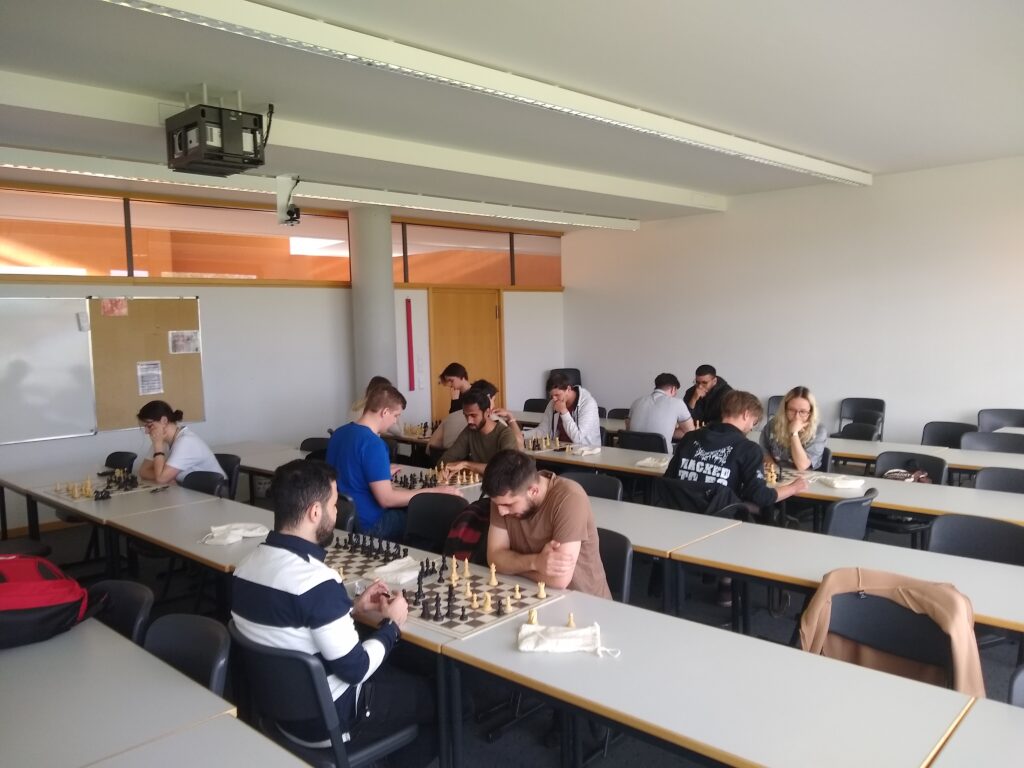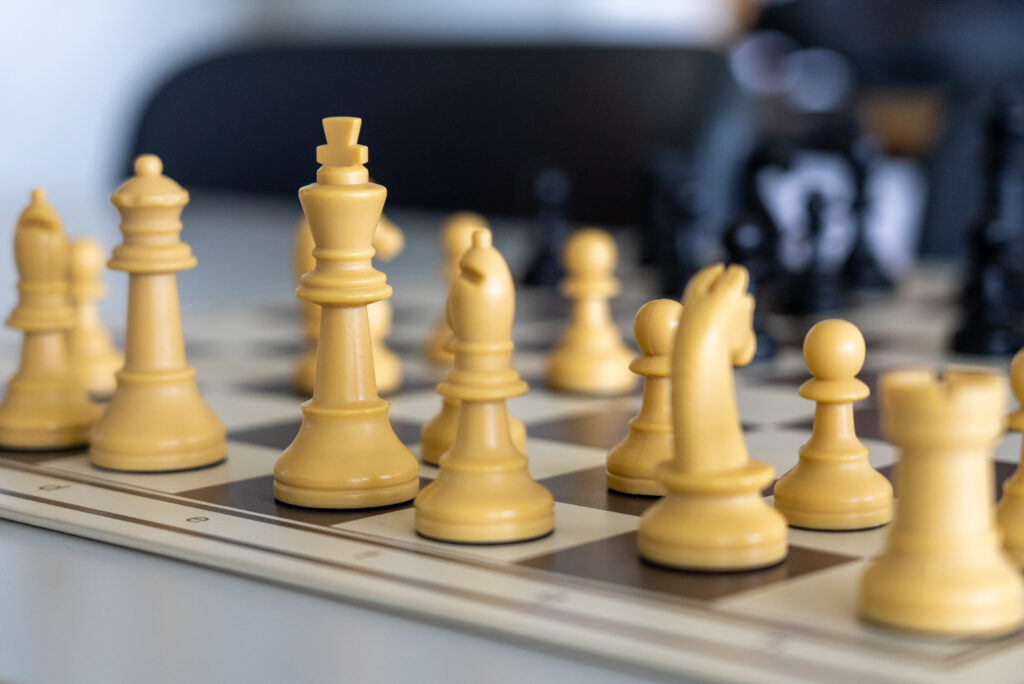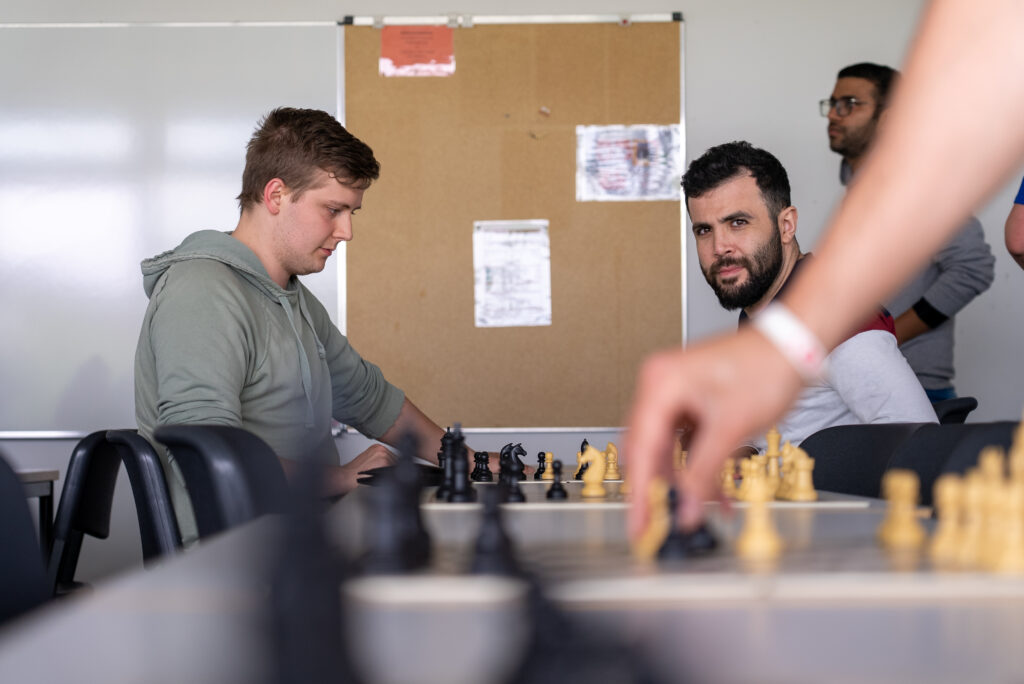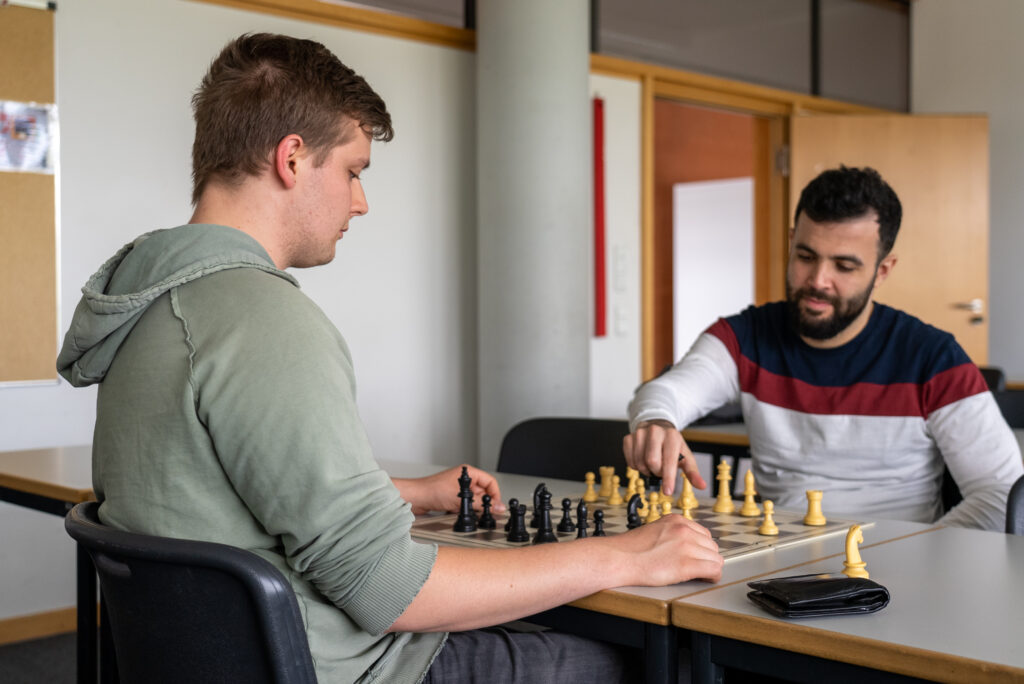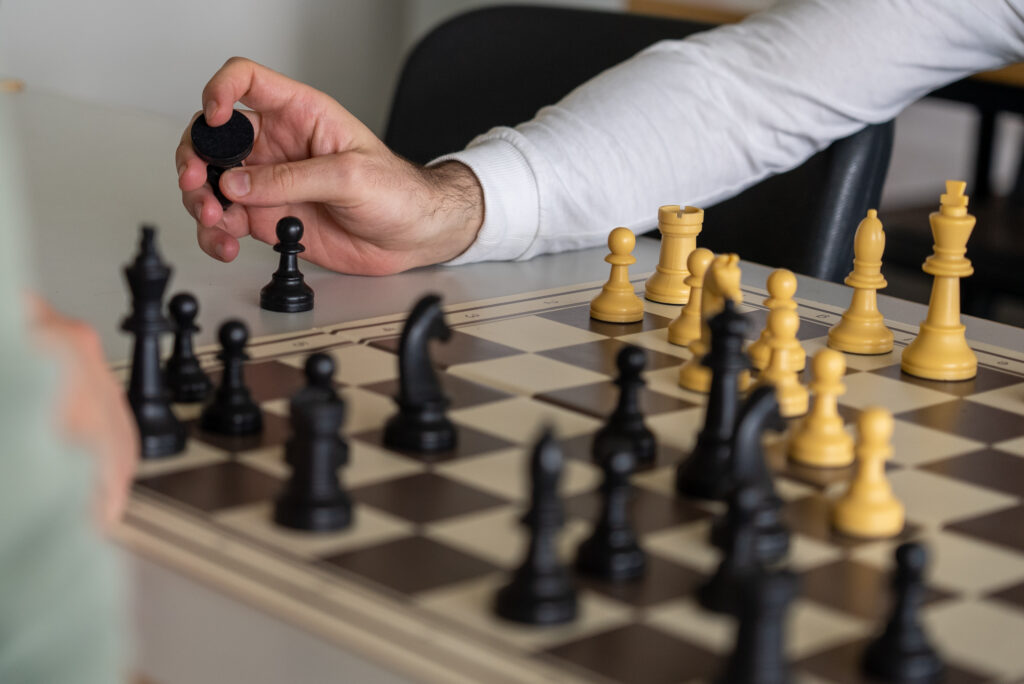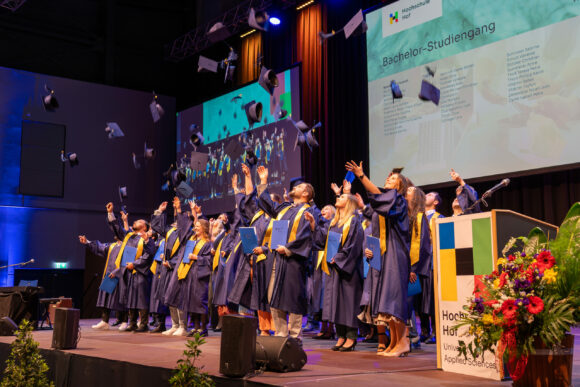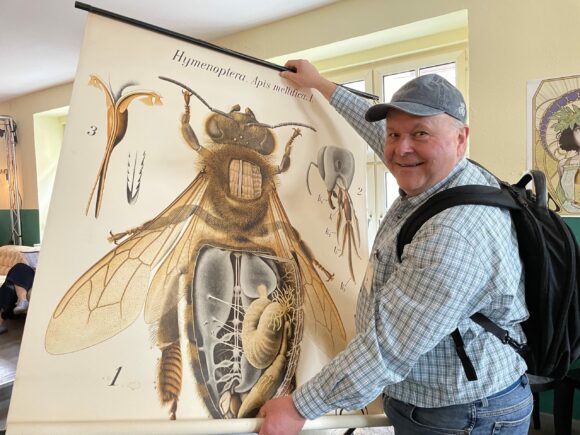Chess is enjoying a remarkable renaissance on the Internet: online tournaments are booming and more and more young people are discovering the fascination of the board game, which was probably originally invented in India and reached Europe via Persia. In the meantime, a group has also been formed at Hof University of Applied Sciences, which meets regularly to pursue this intellectual sport. It is led by Prof. Dr. Jörg Scheidt and Nico Herpich (Master’s degree in mechanical engineering).
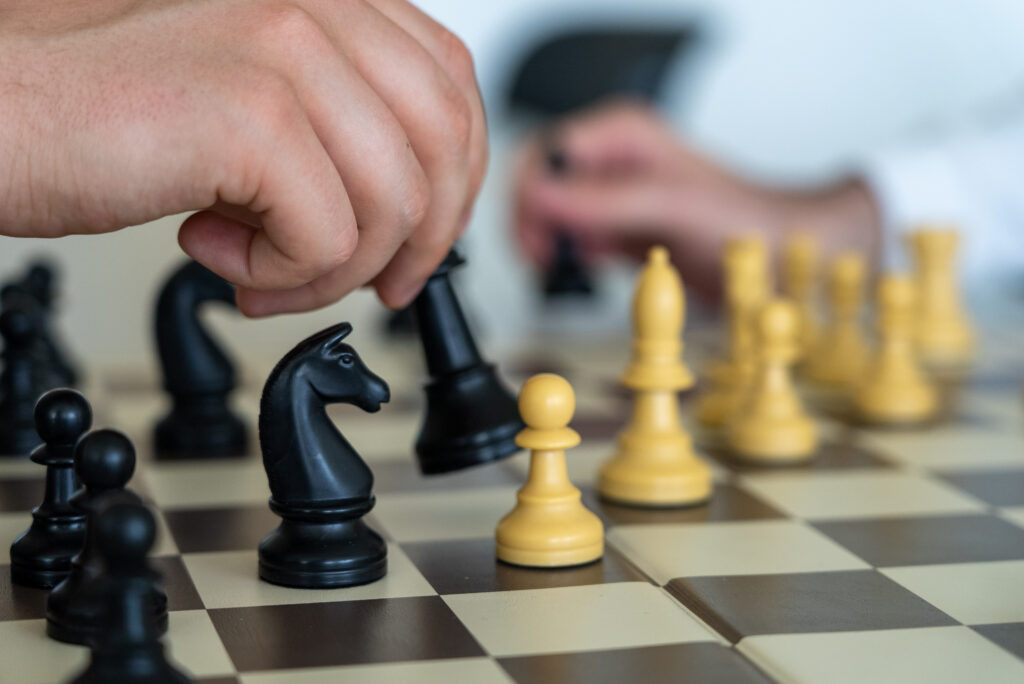
Prof. Scheidt, chess is a very old game with a high demand on concentration and thinking power. The current success of the sport among younger people almost somewhat contradicts the cliché of a generation with supposedly ever shorter attention spans…so why this success?
JS: “During the time of the COVID-19 pandemic, chess experienced a major boom. Chess platforms on the Internet made it possible to network easily with chess enthusiasts all over the world and to play against each other online. Incidentally, the boom was also fueled by the Netflix series “The Queen’s Gambit”, which introduced many young people to the game of chess. What’s more, the cliché of chess players sitting for hours and making the occasional move is no longer true. There are now also extremely short chess games – so-called bullet chess – in which everyone has one minute of thinking time for the entire game – so the game is over after 2 minutes at the latest!”
That sounds unexpected and exciting. Do you want to transport this to Hof University, Mr. Herpich?
NH: “Yes! Our idea was to bring chess players together not only in front of the PC, but also on site. Therefore, the goal of our chess group – apart from the game itself – is also to create personal contacts, for example, between our international and our local students, or to get different faculties and departments around one table or better “at one board”.”
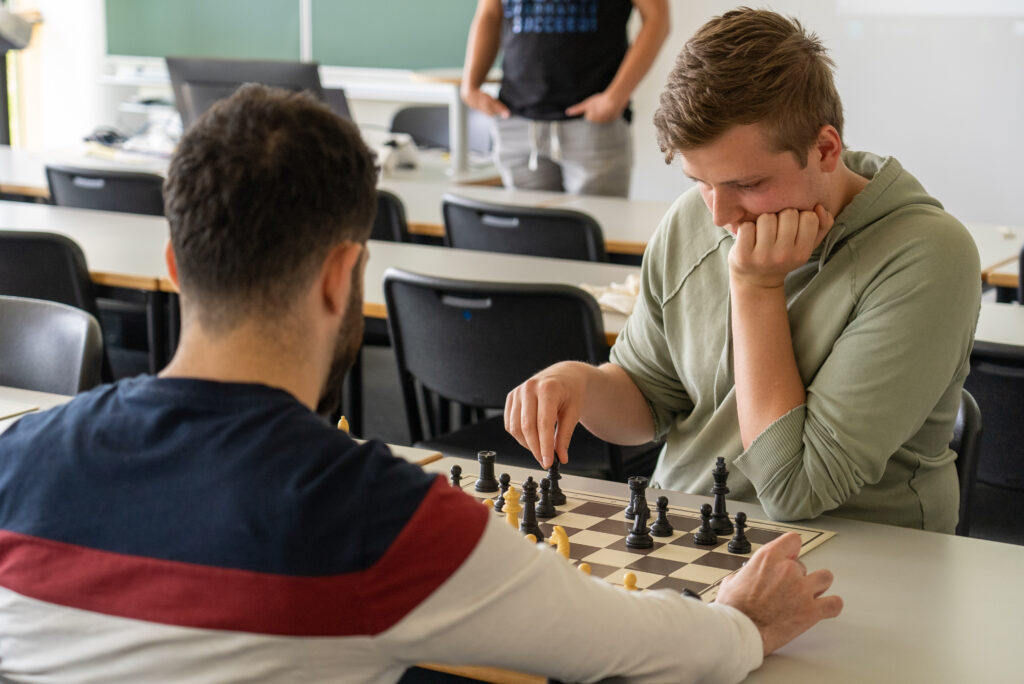
How many participants have you already been able to attract for this?
NH: “Currently, on average, between 12 and 14 participants come to our meetings. Of these, 3 are female, the rest male – so we could definitely use some more female reinforcement. Half of our players come from international backgrounds, so here the ratio to German players is very balanced.”
Chess is considered to be originally an Indian game. Do you notice that in the university’s chess group?
JS: “Surprisingly, Indian participation is still somewhat expandable given the popularity the game enjoys on the subcontinent and also in view of the fact that the vast majority of our Indian students at least know the rules of the game.”
How should one imagine the training?
NH: “We meet once a week, always on Mondays from 5:30 to 7:00 pm. The communication takes place via the Moodle course or via a Whatsapp group. During the training itself, a few chess problems are usually solved at the beginning. This is followed by either free play or a small tournament with a draw for the respective players. Sometimes there is also simultaneous chess.”
You, dear Prof. Scheidt, always carry your personal love for chess beyond the campus as well…
JS: “Yes, you can put it that way. The Hof Chess Club and I are organizing a chess tournament for non-club players on July 21. That means, for example, we are specifically targeting pupils from Hof schools, but our students at the university are also cordially invited. But we also want to live the inclusion of somewhat older people in this tournament and address people who may have played in the past and are looking for a hobby again after the “family phase”, which in principle you can practice as long as you want and which keeps mentally fit. More info on this tournament is gladly available from me directly!”
Thank you very much for the interview!
Note: A simultaneous chess tournament will also be offered at the Night of the Sciences on 23.6 . – follow the current program for this….
